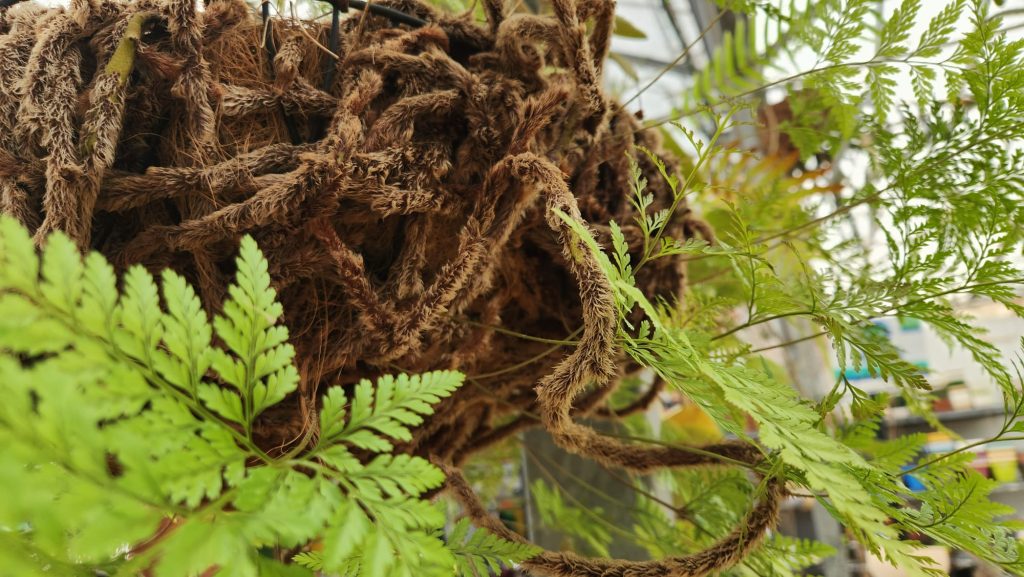
Davallia, Rabbit's Foot Fern
Family: Davalliaceae | Origin: Asia (or Macaronesia and southwestern Europe)
Of the more than 10,000 species of ferns that grow wild around the world, there are probably only a few dozen that are used in gardening in Israel.
If you think about it, it's not particularly surprising; most fern species live in tropical rainforests under constant heat and humidity and the rest are mostly concentrated in temperate regions like Europe, where winters are cold, but humidity is high all year round.
There are a few interesting species of ferns that grow wild in drier and even desert climates (and about twenty species of native ferns in Israel), but these are mostly small and less suitable for gardening.
The climate of the mountain regions in Israel poses two main difficulties for tropical ferns: very dry air and intense cold in winter. Even the temperate ferns that are resistant to cold, suffer from dryness and for some it is also too hot in the summer.
For these reasons, there are very few species that are successful as garden plants in the mountain regions. Among the first of these are one or two species of Nephrolepis (Australian Sword Fern) and Cyrtomium falcatum, which have been common in gardening for many years and are very resistant to heat, drought and cold.
The Nephrolepis obliterata manages to grow and thrive here even in full sun!
One beautiful fern, which is not suitable for growing in the ground, but thrives in pots and hanging baskets, is the Davallia, also known as the Rabbit's Foot Fern. It also does not suffer at all in our dry and hot summers or cold winters. This is a small plant with an abundance of triangular pinnate leaves, that reach a length of 20-40 cm.

When mature, the leaves grow dark spores on their undersides.
The plant is unique in its long, hairy rhizomes that twist inside and outside the pot or basket while hanging in the air and their long tips are free of leaves.
These hairy rhizomes, with their whitish tips, probably reminded someone of rabbit feet, hence the fern's nickname.
In nature, these ferns grow as epiphytes on trees or rocks, and the rhizomes grope and cling to moist surfaces and grow roots.
This is an excellent plant for a pot or hanging basket in full shade, which also does well indoors in high or medium light. The fleshy rhizomes store water and sugars, so the it is relatively resistant to watering errors compared to other tropical ferns, but one still should water it regularly while ensuring good drainage.
We recommend growing it in a small pot or in a basket hanging high, so that you can see the special rabbit's feet dangling down.
As mentioned, this Fern is completely resistant to the Jerusalem cold and is generally not damaged even in cold winters. You can grow it outside without fear for many years and enjoy its tropical and ornamental appearance.
With ferns, it is often difficult to distinguish between related species. The main species of Davallia found in garden centers around the world is called Davallia fejeensis or Fiji Davallia and originates from the Fiji Islands in the Pacific Ocean.
It seems surprising that such a tropical species would thrive easily in our climate. Another very similar species is called Davalia canariensis or Canary Island Davallia and grows in the Canary Islands, Madeira and western Morocco, and also in Spain and Portugal and is more resistant to cold and drought. In our opinion, it is possible that this is the robust plant that is successful here. It could also be a hybrid of some kind.
Anyway, we now (Sep 2025) have some lovely little Davallia plants for sale – so stop by before all the rabbits here disappear..
P.S.
We recommend being patient because Davallia, unlike rabbits, grows relatively slowly…

